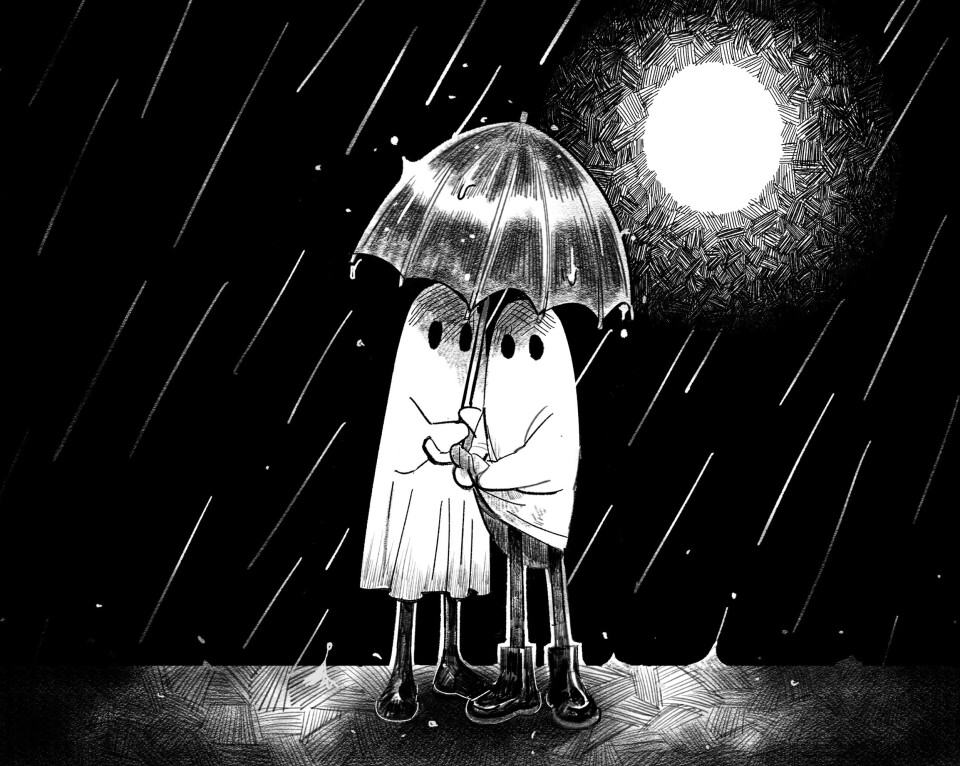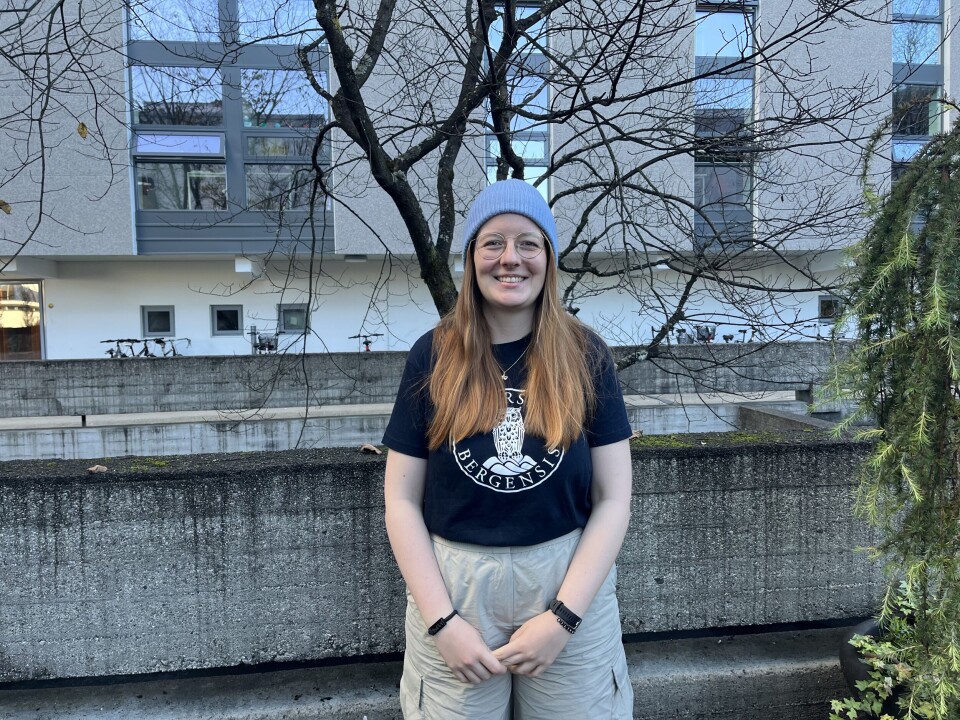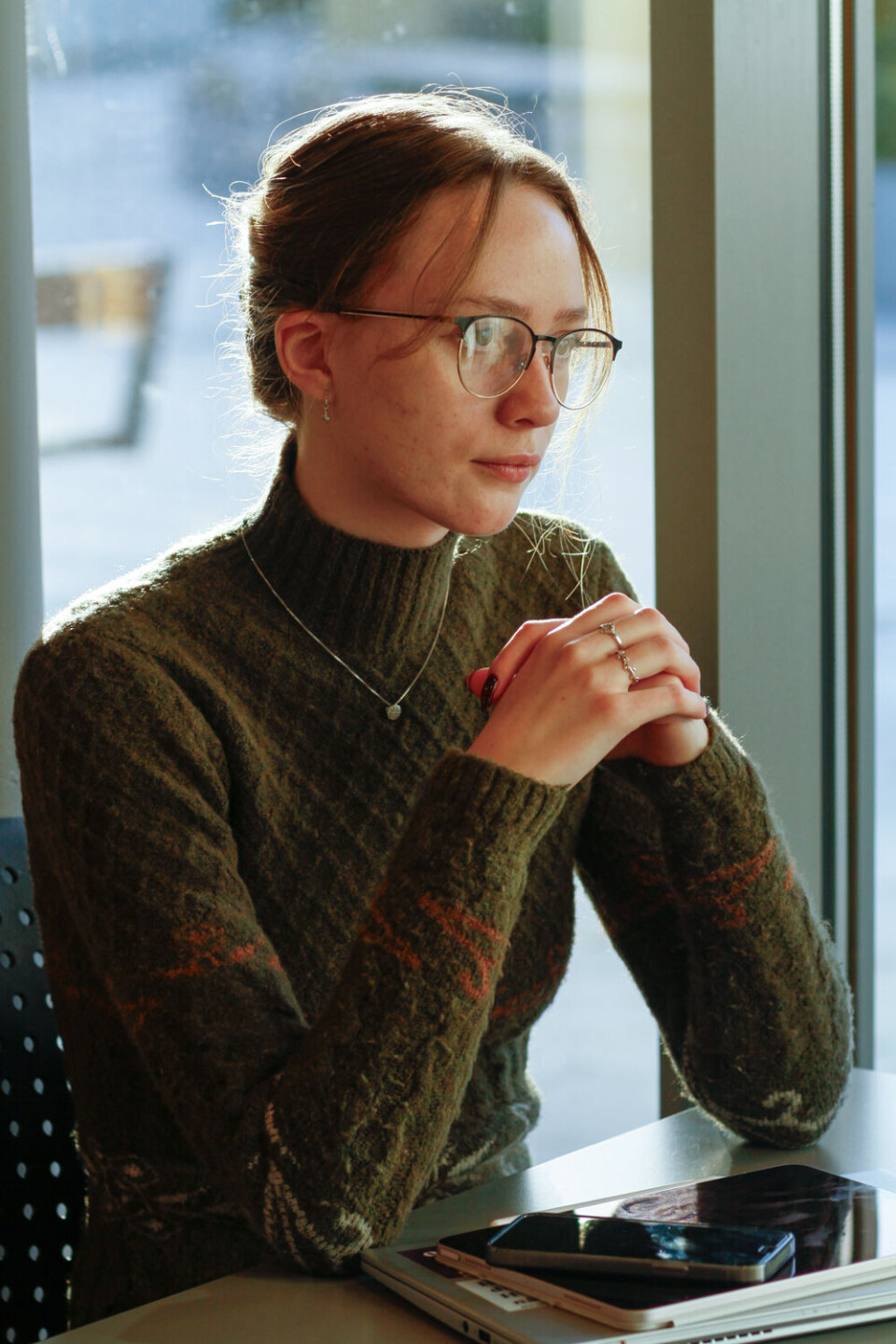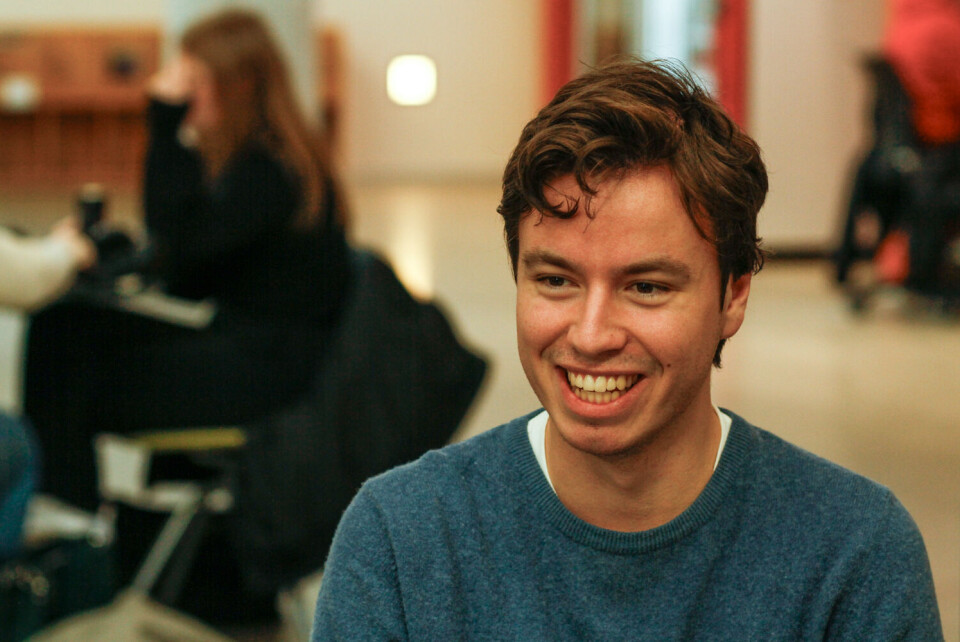English
– Good routines are important
As the days get shorter, many are affected by seasonal depression. We asked some students and a psychology specialist how you can make the upcoming months a little easier.

When you live in the Nordic countries, perhaps the most prominent sign of the approaching winter is the darkness. With that, symptoms of seasonal depression may arise.
If you struggle with seasonal depression, you are not alone. Tiredness, sadness and lack of motivation are things that many people are familiar with during the darker months.
The lack of light can be quite the shock. However, there are some things that help to survive through the following months, and even find enjoyment in them.
Once in a lifetime experience
Exchange student Jana Wittke (22) came to Bergen from Germany this autumn, and is staying until the end of December. When choosing Norway, Wittke had to consider what it will be like to experience periods with short days and long nights.
Despite this, the thought of darkness did not turn her away from Norway.
– It will be a once in a lifetime experience. It is just one winter out of many winters in my whole life, she explains.
Wittke does not feel like she struggles with seasonal depression. Despite this, the different conditions have been something to get used to.

– I think about the darkness here more than I did at home, she says.
Naturally, as the weather gets colder, people tend to spend more time at home. Wittke says that it is nice to have a hobby that you can do inside and feel cozy. She herself has learnt knitting.
Additionally, Wittke highlights the importance of not struggling alone.
– It’s good to have people around you especially if you are an exchange student, as most of your friends and family are not here physically, she says.
– It’s harder to have energy
Norwegians are expected to be experts when it comes to surviving the Nordic winters.
However, even they are not immune to seasonal depression.
Frøya Haglund (21) is a second-year information science student in University of Bergen, and has noticed the lack of daylight affecting her life.
– When the daylight starts to get reduced, it’s harder to have energy. My mood is a little lower and I’m tired a lot more, Haglund says.
She normally notices the shift in her mood towards the end of October, and says that during the summer months, everything feels just a little bit lighter.
Comparative politics student Halvor Uggerud (23) has also noticed the effects.
– I’ve felt that I’m not as social when the days get darker and colder. It is also hard to go out exercising, Uggerud says.

He thinks it is harder to be social during the winter because people tend to isolate themselves more easily. In general, there is a lot more to do during summer.
Uggerud thinks that seasonal depression has a lot to do with sunlight.
– We underestimate how important sunlight is for both our physical and mental health, he says.
Take your vitamins
But how do these so-called experts handle the dark season? Haglund and Uggerud have some tips in store.
Haglund has made some changes in her daily rhythm to adjust for the lack of sunlight.
– Instead of waking up at around seven or six-thirty, I wake up at eight and then in the evening I stay up for a couple hours later, Haglund says and continues:
– Even though waking up later is not that nice, it is better than being tired all the time.
This year, she invested in a wake-up light. The light simulates sunrise and therefore might help with the dark mornings.
– I have thought about purchasing it for many years and it was definitely a good investment, Haglund says.
Both say that it is important to take vitamins, especially vitamin D to compensate for the lack of sunlight. Uggerud also advices to study in the evenings so that you can be out during the daylight.
In case you struggle a lot during the darker months, Uggerud also has an important reminder:
– The shortest day is around the twenty-second of December, and after that the days will start to get longer again. You can use that as a motivation that it will get better eventually.
– Good routines are important

But what exactly is seasonal depression? Psychology specialist and the head of Sammen mental health services, Øystein Sandven, has an answer for that.
– For most people, it is changes in mood, energy and enthusiasm are noticeable in the fall as the days get shorter and the darkness sets in, Sandven says.
He highlights that this does not always mean that you are depressed. It might just be the season affecting your overall mood.
Sandven says that the reasons for seasonal depression might be hormonal.
– Physiologically, we are stimulated by light at the hormonal level, and therefore lack of light may lead to us having less energy. Therefore, it requires more effort to get things done, Sandven concludes.
– So, what can people do to protect themselves against seasonal depression?
Sandven believes that good routines and a weekly structure can help prevent seasonal depression. He also lists physical activity, social interaction, diet, a regular sleep schedule and getting outside in the sun as important tools.
– An alternative to those affected by the short days can be light therapy, he says and continues:
– It has been well documented that lamps with the rignt light spectrum can be used to stimulate us when the sun does not.
















